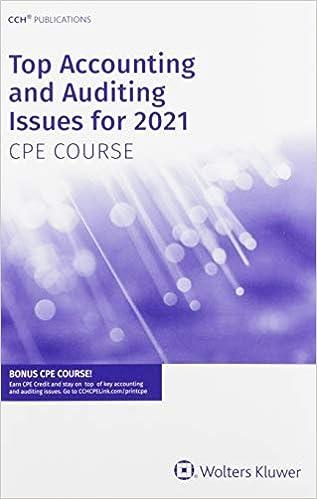Question
[The following information applies to the questions displayed below.] In each of the cases below, assume that Division X has a product that can be
[The following information applies to the questions displayed below.]
In each of the cases below, assume that Division X has a product that can be sold either to outside customers or to Division Y of the same company for use in its production process. The managers of the divisions are evaluated based on their divisional profits.
| Case | |||||||
| A | B | ||||||
| Division X: | |||||||
| Capacity in units | 92,000 | 106,000 | |||||
| Number of units being sold to outside customers | 92,000 | 89,000 | |||||
| Selling price per unit to outside customers | $ | 58 | $ | 28 | |||
| Variable costs per unit | $ | 23 | $ | 19 | |||
| Fixed costs per unit (based on capacity) | $ | 6 | $ | 6 | |||
| Division Y: | |||||||
| Number of units needed for production | 17,000 | 17,000 | |||||
| Purchase price per unit now being paid to an outside supplier | $ | 50 | $ | 38 | |||
|
| |||||||
1-a. Refer to the data in case A above. Assume in this case that $2 per unit in variable selling costs can be avoided on intracompany sales. Determine the transfer price of the selling division.
1-b. If the managers are free to negotiate and make decisions on their own, will a transfer take place?
| No | |
| Yes |
2-a. Refer to the data in case B above. In this case, there will be no savings in variable selling costs on intracompany sales. Determine the transfer price of the selling division
2-b. If the managers are free to negotiate and make decisions on their own, will a transfer take place?
| No | |
| Yes |
2-c. What is the range of transfer price the managers of both divisions should agree?
Step by Step Solution
There are 3 Steps involved in it
Step: 1

Get Instant Access to Expert-Tailored Solutions
See step-by-step solutions with expert insights and AI powered tools for academic success
Step: 2

Step: 3

Ace Your Homework with AI
Get the answers you need in no time with our AI-driven, step-by-step assistance
Get Started


